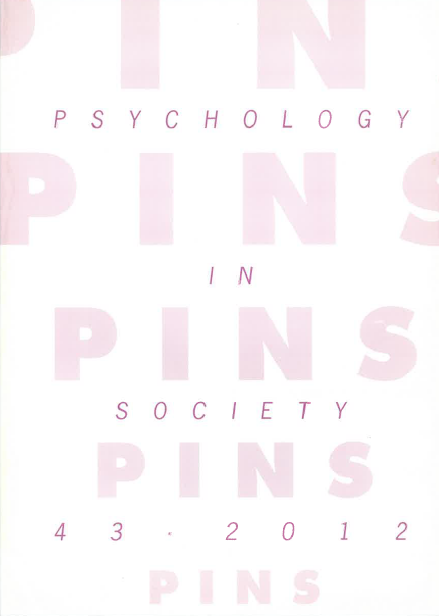ON ABJECTION, FORFEITURE AND THE REMAKING OF SOCIALITY IN LESISIFO
DOI:
https://doi.org/10.17159//2309-8708/2012/n43a6Abstract
Henderson, P C (2011) AIDS, intimacy and care in rural KwaZulu-Natal: A kinship of bones. Amsterdam: Amsterdam University Press. ISBN 978-90-8964-359-9 pbk. Pages 254.
Genealogical accounts of the HIV/Aids epidemic document the historicized swells and riffs of attention associated with particular risky populations or sexual practices, with effective prevention techniques or brands of responsible and caring citizenship, and with the politics of antiretroviral treatment. An unprecedented amount of attention – often underscored by outrage, panic and hopelessness – has centred on the issue of access to antiretroviral treatments in Africa, and on the malaise of public health systems in Africa (Nguyen, 2010). Research writing about the African “treatment decade” between 1995 and 2005 finds antiretroviral treatment as a globally promised restitution nuanced with insurmountable hitches, varying degrees of support and resistance, and lucky breaks on the ground that govern living with or death from Aids (Robins, 2009).
Downloads
Downloads
Published
How to Cite
Issue
Section
License
This journal is an open access journal, and the authors' and journal should be properly acknowledged, when works are cited.
Authors may use the publishers version for teaching purposes, in books, theses, dissertations, conferences and conference papers.
A copy of the authors’ publishers version may also be hosted on the following websites:
- Non-commercial personal homepage or blog.
- Institutional webpage.
- Authors Institutional Repository.
The following notice should accompany such a posting on the website: “This is an electronic version of an article published in PINS, Volume XXX, number XXX, pages XXX–XXX”, DOI. Authors should also supply a hyperlink to the original paper or indicate where the original paper (http://www.journals.ac.za/index.php/pins) may be found.
Authors publishers version, affiliated with the Stellenbosch University will be automatically deposited in the University’s’ Institutional Repository SUNScholar.
Articles as a whole, may not be re-published with another journal.
The copyright of the article(s) lies with the author(s).
The copyright of the journal lies with PINS-psychology in Society.
The following license applies:
Attribution CC BY-NC-ND 4.0 - https://creativecommons.org/licenses/by-nc-nd/4.0/

